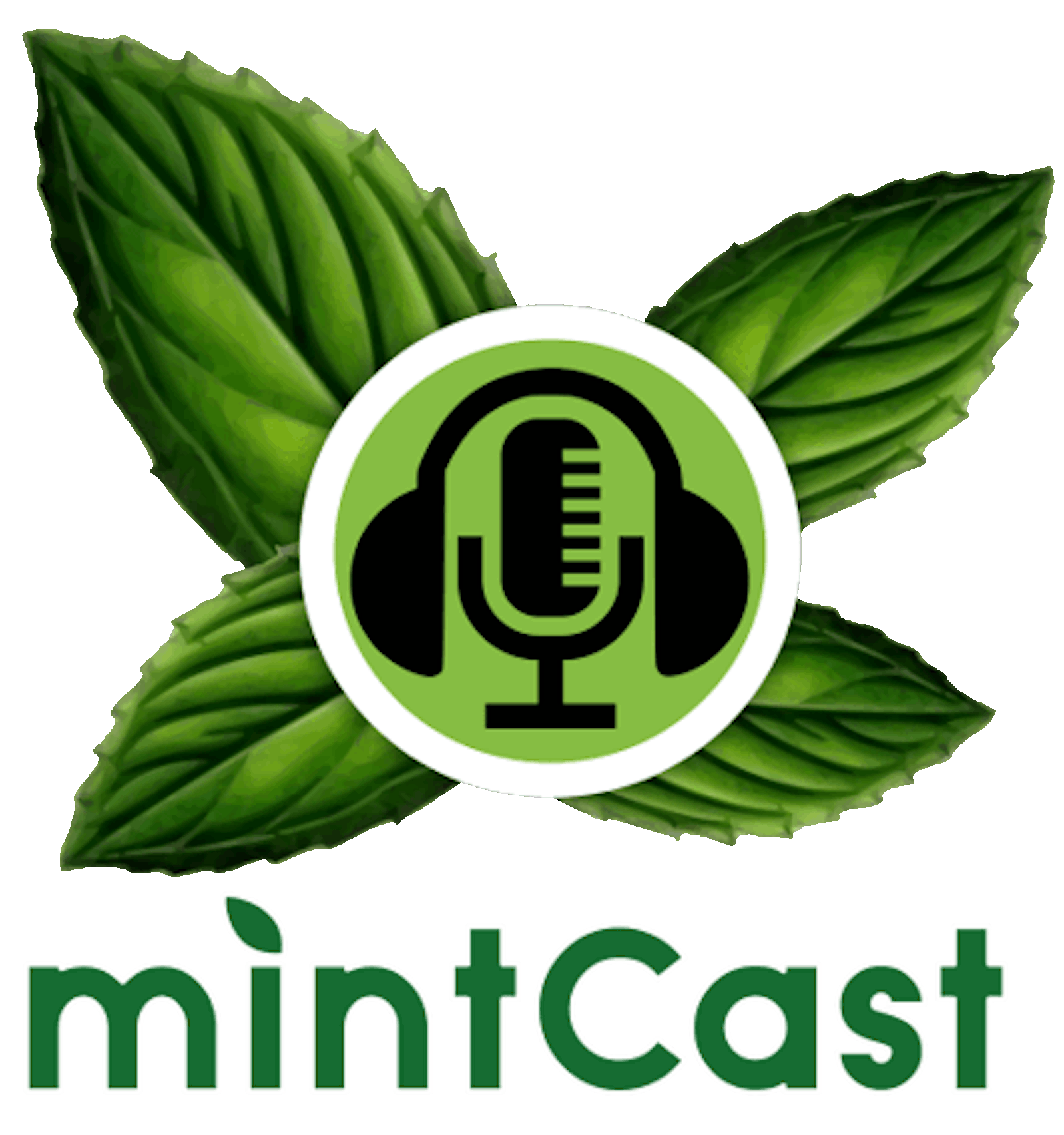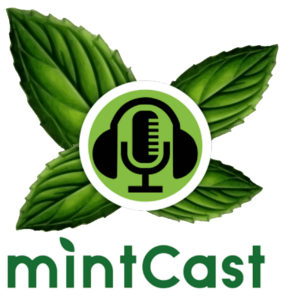Episode 22: Podcatchers
OggCamp
The Linux Outlaws and the Ubuntu UK Podcast are organising a barcamp-style free software / free culture event called OggCamp on Sunday, the 25th of October in Wolverhampton in the UK (home of LugRadio and LugRadio Live).
The event is located in the Connaught Hotel which is also the official hotel for LugRadio Live 2009 to be held on the previous day.
Admission is free and anybody can turn up on the day to talk about an interesting topic close to his or her heart or just roll out of bed and nurse the post-LRL hangover while listening to other people do the talking.
You can find out more about the event at http://oggcamp.org
In this episode
Linux Mint 7 XFCE released
The XFCE Community Edition aims to provide a version of Linux Mint which uses the XFCE desktop.
How to reinstall grub from a live cd
Podcatchers
Rhythmbox
Banshee
Amarok
gpodder (Not in mintinstall)
miro
songbird (Not in mintinstall)
PenguinTV (Not in mintinstall)
YamipodNow called Floola
Armangil’s podcatcher
Separate partition for /home folder
Considerations before you install: http://forums.linuxmint.com/viewtopic.php?t=11872
Parted manual: http://www.gnu.org/software/parted/manual/
Filesystem features: http://en.wikipedia.org/wiki/Comparison_of_file_systems
Web site of the week
Feedback
Rooting your Android phone
Here’s why you should do it
Here’s how you should do it
Here’s what you can do with it
More info
Hosts: Charles, Rothgar
Subscribe to the podcast: [iTunes] [Zune] [RSS MP3] [RSS OGG]
Contact podcast:
Email: [email protected]
Phone: 1-832-514-2278
Twitter: @mintCast @Rothgar @Linux_Mint
More info: Linux Mint website, blog, forums
Podcast: Play in new window | Download
Subscribe: RSS




Your feed at mintcast.org/feed seems to only be for ogg for the last couple of episodes. This is frustrating for me (and likely others) as on my older PC it takes a long time for Rhythmbox to do the conversion for an ipod with no way to stop it once started. I can’t locate your mp3 feed on the site.
the RSS feed at http://www.mintcast.org/feed will be for everything on the site, not just podcasts. If you want to subscribe to just the podcast in a podcatcher please use http://www.mintcast.org/feed/podcast Please let me know if you have any problems with that. Thanks for listening.
Love the Podcast guys. benn listening since the 1st episode and have enjoyed every one.
Just listening to MintCast episode 22 and enjoyed the section on Miro. I am an avid user of Miro and noticed you left out my favorite subscription – Linux Journal- Tech tip of the day. It’s hosted by Shawn Powers, the Keynote speaker at Ohio Linuxfest next weekend. Check it out guys, it’s great. Keep up the great work.
http://www.miroguide.com/feeds/5671
What was previously known as Lindows is now known as Linspire as fare as I know. This change came after a setlement with MS after a sue.
If 100% of the legal Windows user base would actualy read the License agreement, Im fairly sure MS Windows would have the smallest OS market share within a year.
As for the history of how Linux came to be.
To make a long story short:
When Linus Torvalds got his first 386 PC it came with MS-DOS (MS just bought DOS it was never made by MS or BG as some seams to believe. DOS Stands for Disk Operation System, and thats about all it could do. Read and write to your disk.)
Linus did not like DOS, but rather wanted to use UNIX that he was studdying in University of Helsinki. At that time however UNIX was a OS that mortal men did not use as it had a license fee out of this world. So he insted had to setle for a small inferior UNIX clone called Minix that although beeing open source in theory, had such a restrictive license that it was not in reality.
Linus was unhappy with the lack of a proper terminal emulation program to use to connect to the Uni’s UNIX server with, so he set out to write his own, and at the same time thought he might lern something about his new CPU (the 80386). One thing lead to another and he realised he needed a driver to read and write to his disk to send and recive files. As he was extending his terminal emulator program he one day accedentaly managed to call his minix paratition /dev/hda* insted of his modem /dev/[something else]. Witch had the result of his minix paratition beeing over written by modem calls. He then decided that his terminal emulation project who started to look more like a OS would have to do, and he later released it for otehers to test first under the name Freax (witch a friend on the Uni then surgested should be changed to Linux)
If you want the Long Story I surgest reading Linus Torvalds self biography “Just for fun” by Linus Torvalds & David Diamond.
Im sure ther was some other thing I had to comment on but this comment is already hiddeously long.
Thanx for restoring the sound quality I can now here what Rothgar is saying 🙂
Thanks as ever for the podcast! For keeping track of passwords I use KeePassX: it’s in the repos.
Rothgar you keep talking about mythtv but have you ever tried xbmc as media centre replacement.
Oh indeed I do have a lot of experience with XBMC. I first started using XBMC back when it was called XBMP and only ran with a chip on a Xbox. XBMC is the reason I have a Xbox connected to my TV at home. I may talk about this in the next podcast too just to elaborate.
The show is a bit lenghty. Maybe keep the episodes at 30–45 minutes like Buzz Out Loud? Makes it much easier to consume.
If you guys have two hours of things to say, you should rather split it up in more episodes and release them more often! 🙂
Sorry Daniel, I disagree, quite happy for the length of the podcast to be variable. I tend to pause and carry on later if I need to go do something.
In response to your conversation on the podcast concerning finding some software to record the podcast from various sources, i.e. in person, telephone, etc., you might query Leo LaPorte who has spoken about the software particulars he uses on his program and also on the Liberty Radio Network, the hosts of the Liberty Roundtable morning show have spoken about their recording software which they have written themselves. Good luck. Michael
You’re kidding.. No BashPodder? It’s been working way longer than anything else you have listed.
Hey Was just wondering if someone could tell me how to submit a audio clip to you guys.
You can record an audio file and email it to:
[email protected]
Or call and leave a message: 1-832-514-2278
I just wanted to respond to this weeks show and the replys that you made to my post from last week. Thanks for the mention.
I think I may have misspoke on a point though and I wanted to clarify. What I meant to say in the point of Linux or more specifically Ubuntu becoming a Windows clone was this. I dont think that Canonical is trying to turn Linux into a Windows clone. I do believe that they are trying to make Linux as user friendly as possible and more accessible to folks who arent so technologically gifted as some of us. I do think that user friendliness is good, and the more the better dont get me wrong. Nobody wants a OS thats difficult or hard to get things done with. What I do not agree with though is people judging Linux based OS’s as though Windows is the standard bar none.
Most of us, learned computing through Windows that’s true. But just because that is true and thats what we are used to does not mean that that way is superior and the standard. I guess I’m fundamentally aggravated by the constant influx of posts I read that are full of insults about how Linux is to hard to use and how Windows is just plain superior. I myself am sick of paying for a vulnerable OS that suffers from instability and is plagued by numerous other issues.
I guess the Myth of Working Out of The Box is what I need to fight against and at the same time I need to help people who are sick of Windows like myself make the switch. That is why I started my blog at http://mintguru.blogspot.com/ Unfortunately many are stuck using Windows due to Office and other formats being the standard amongst business and academia. I suffer from this myself daily, as I am a college student and will be taking online courses soon that will force me to use apps like Word or at least there formats. God knows what other programs I will have to use during my education in Computer Science that will force me to use Windows or software that only runs on it.
I guess my point is a lost cause as people will continue to try and persuade developers to turn Linux into a Windows clone and people like me will continue to be avid Linux fans. Once again let’s just all use what we like, and I pray that one day I wont wake up to a world were Linux does not exist and be stuck in a world were MS and Windows are my only option.
Hi guys,
Charles, checkout Google Listen, http://listen.googlelabs.com
It’s a nice alternative to Dogcatcher.
Clem.
Songbird and gPodder were added to mintInstall.
Regarding the sound quality technicalities discussed in the podcast, the site you used probably recorded sound with a sample rate of 22 kHz, which is about half of that of a CD (which is 44.1 kHz).
In digital uncompressed sound except for the sample rate (which can be explained as how many times per second the sound is measured) also bit depth and channels are of interest. The bit depth of CD quality sound is 16 bits (which can be explained as how detailed or exact the sound that gets measured more than 40 thousands times per second is) and the amount of channels (CD sound obviously has two). By multiplying these values you also get the bitrate of the uncompressed sound, which for CD-quality sound is 44100*16*2=1411200 bits per second, or ~1411 kbit / sec (1 kbit equals 1000 bits and not 1024). To achieve lower bitrates than that you can apply compressing algorithms like mp3 for example.
So; a change of sample rate from 44.1 kHz to 22 kHz instantaneously reduces the audio quality by half by mathematical standards. (And to most it sounds even worse than half as good..) Thats most probably why the sound on the last podcast was so bad. It can also be added that, at least in sweden, regular land telephone lines quality is close to 22 kHz which sounds really bad when put through real speakers.
Oh, and i just set my password to just the letter a also. As in apple.